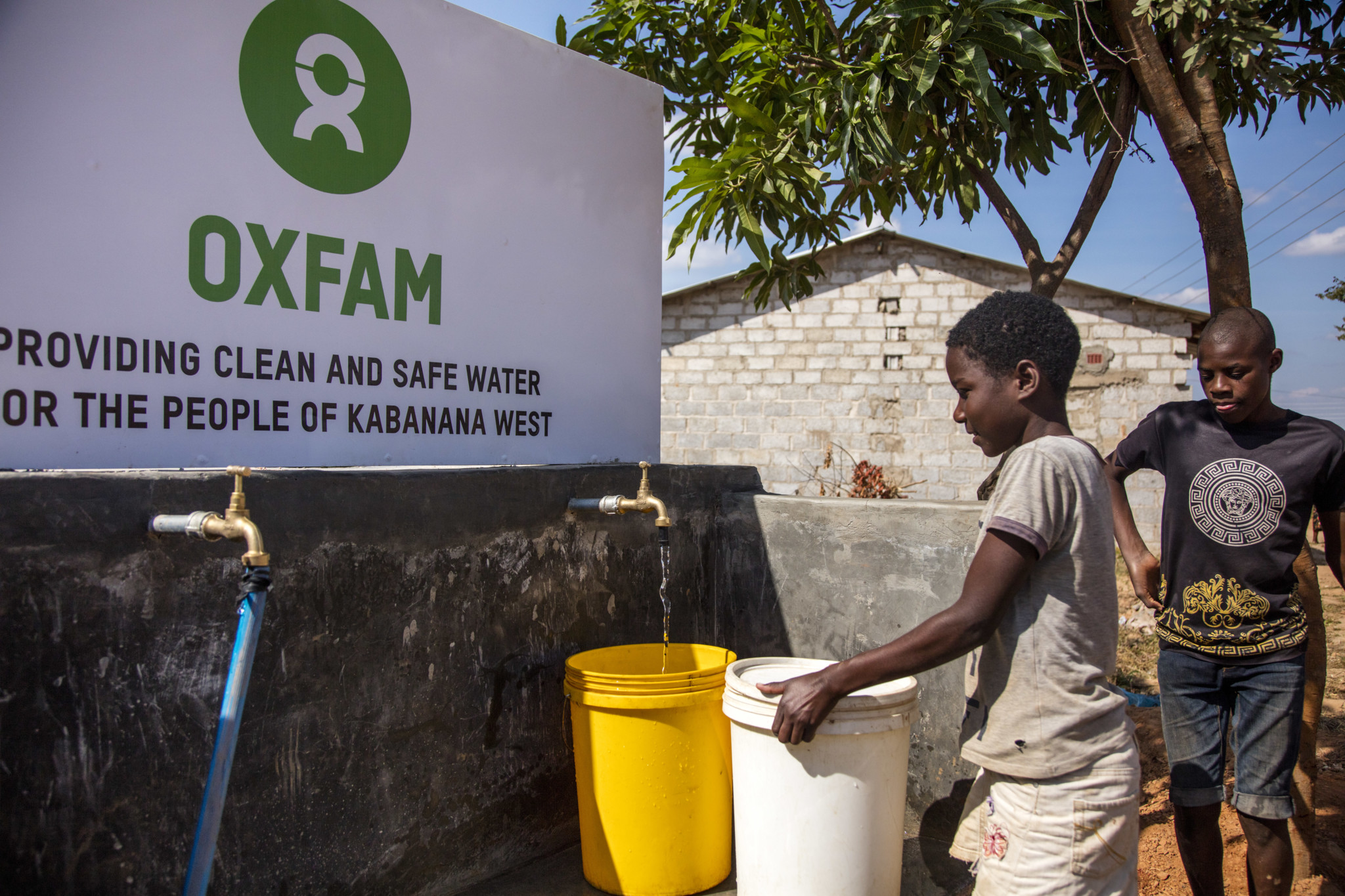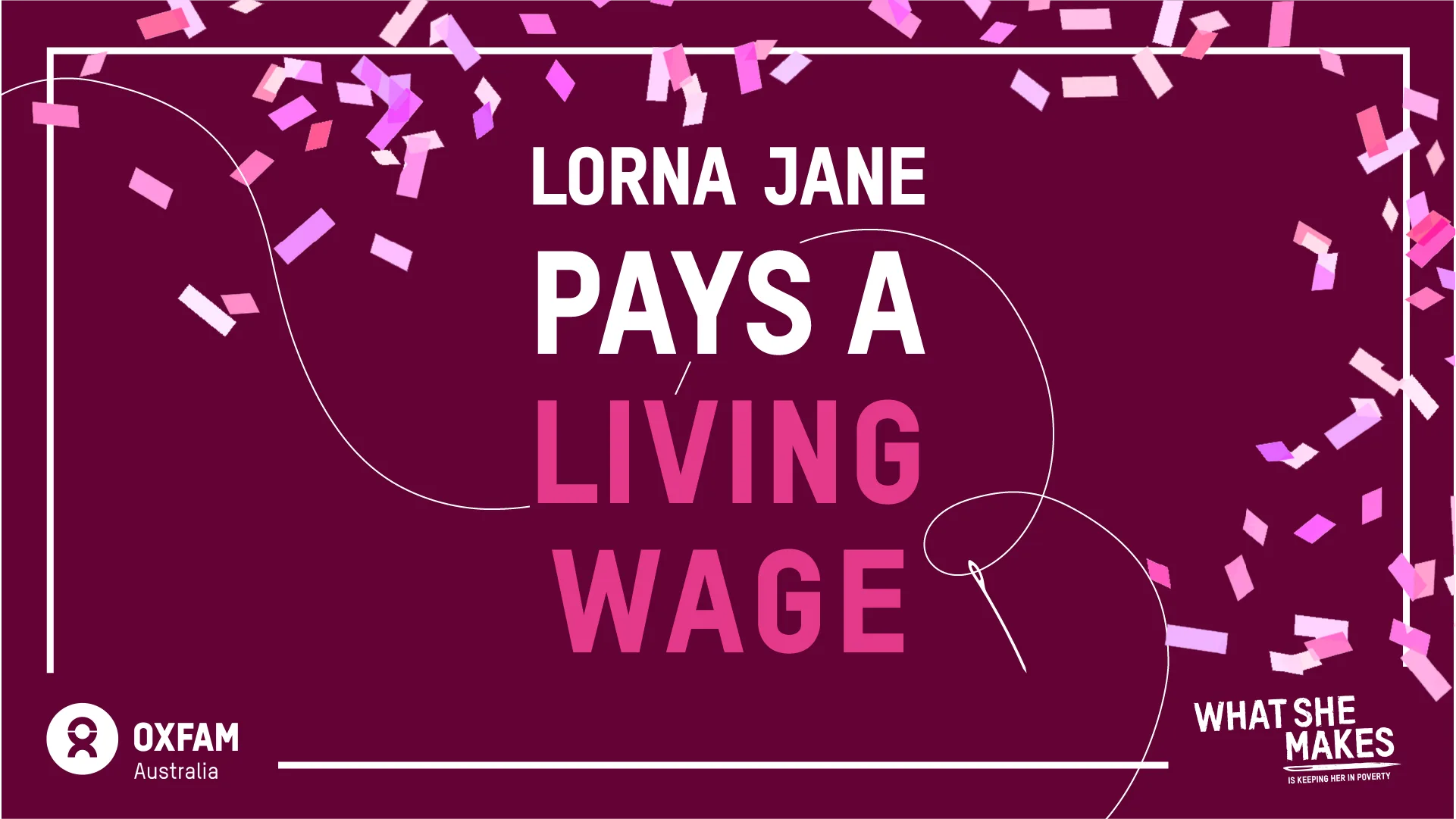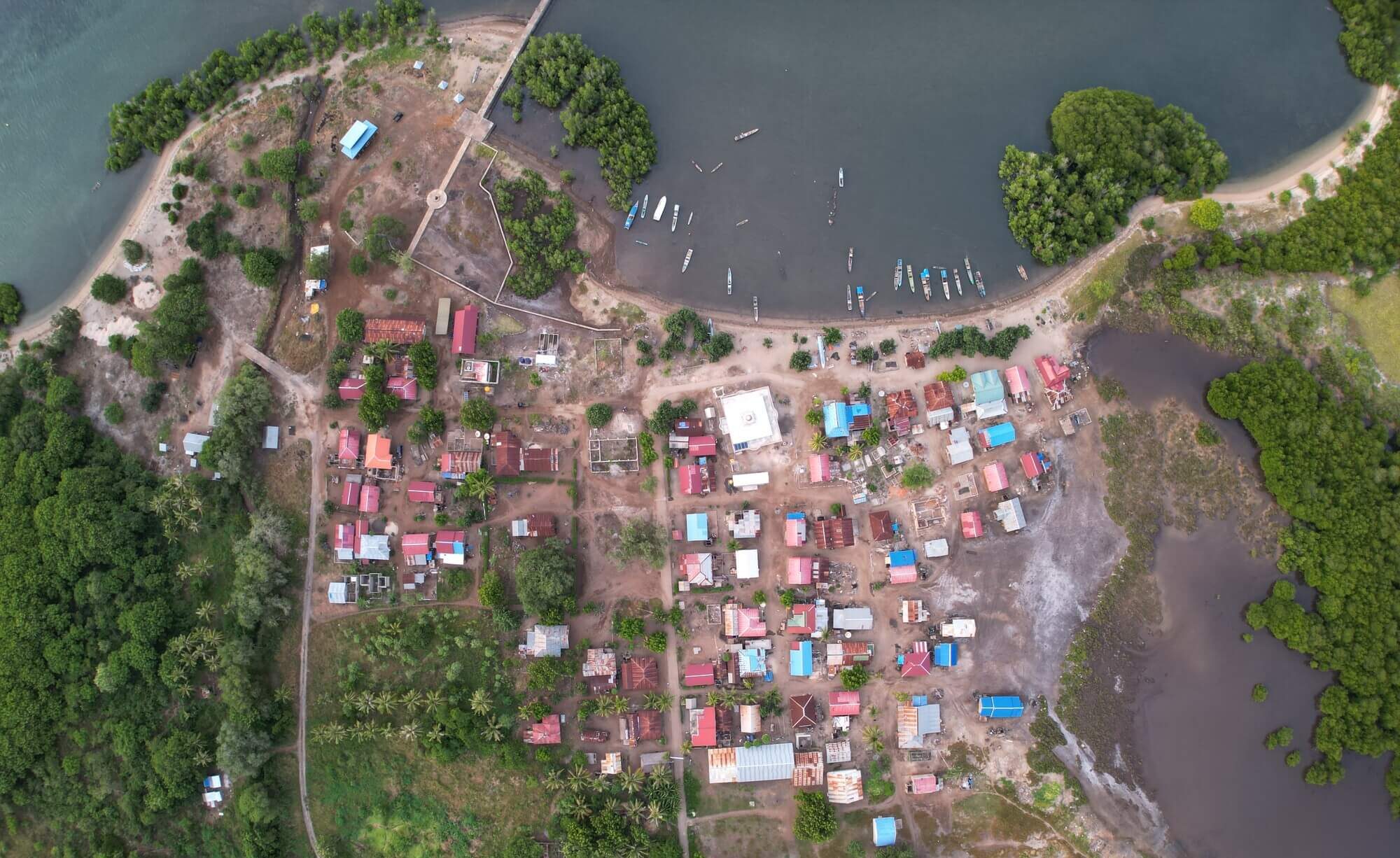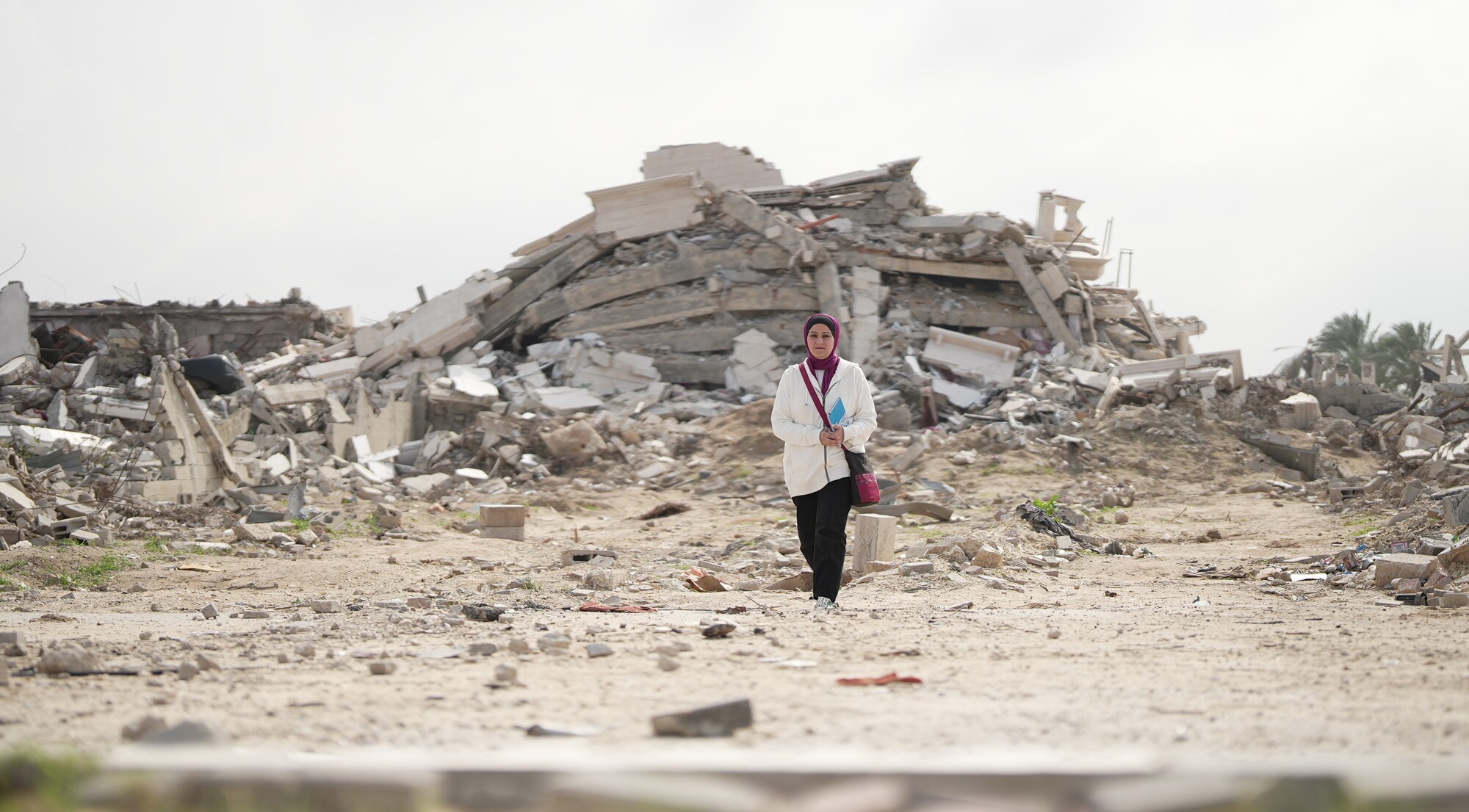It’s all too easy to forget what a miracle water is. With a water supply on tap, food can grow, and people can thrive.
Over the past 5 decades, Oxfam has forged the way in water and sanitation provision. Our water engineers are renowned for their speed and efficiency, providing large-scale water supplies and disease-preventing sanitation facilities to millions of vulnerable people in the world, even in the most challenging environments.
Oxfam works to strengthen the communities’ recovery capacities against the impacts of drought, outbreaks of waterborne diseases and the risks of conflict due to limited access to safe water.
Working alongside partners on the ground, we are committed to developing innovative, long-term and cost-effective solutions that are tailored to each community’s unique needs and can reduce levels of poverty and disease.
If there’s one thing we’ve learnt working with vulnerable communities over the last 60 years it’s that helping people gain financial independence is the best way to kick poverty and inequality.
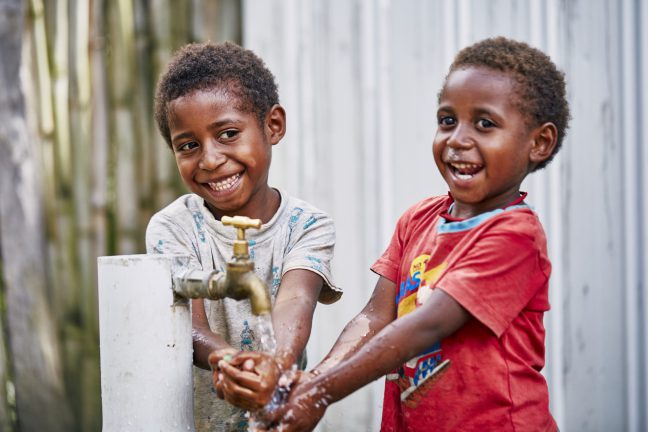
WE-Care Program in Zimbabwe
Taku is an inspirational water engineer in Zimbabwe. Taku is passionate about getting water to the rural communities of her country; a country where countless women walk hours every day to collect water that may not even be clean. So Taku completed a Masters in Water Resource Engineering and now works for Oxfam’s WE-Care program.
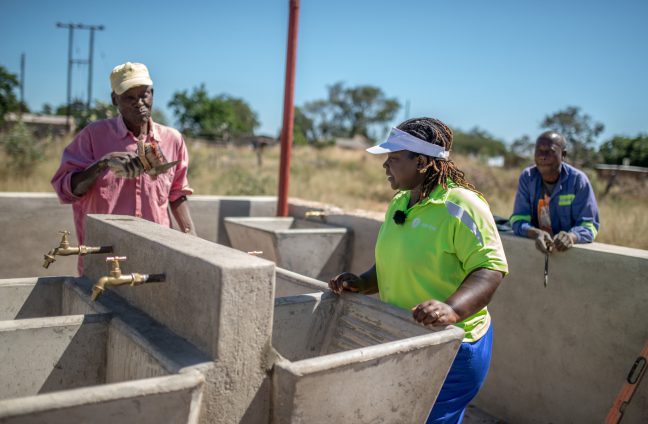
“My role in this project is to see that the population or the communities that we are working in have access to clean water and that this water helps in the reduction of burden of unpaid care work,” she says.
Taku is now overseeing the establishment of a solar-powered water system, which pipes water from a deep borehole into rural villages that don’t otherwise have water, including key distribution points like schools and clinics.
“When you do something out of love, out of passion, you’ll definitely do a good job and achieve results.”
Thanks to your generosity, together we are empowering women like Taku to deliver sustainable solutions that help their community not just survive, but thrive.
Yemen: war and water
It has been five years since the war in Yemen dramatically escalated. According to the widely respected Armed Conflict Location and Event Data Project (ACLED), the number of fatalities from the war passed the 100,000 mark in November 2019. On top of this is that a lack of clean water and sanitation has seen cholera claiming many more lives, and now COVID-19 poses a fresh challenge to the nation and it’s people.
“After five years of death, disease and displacement and in the face of a rising threat from a global pandemic, Yemenis desperately need all warring parties to agree to an immediate countrywide ceasefire and return to negotiations to achieving a lasting peace” – Muhsin Siddiquey, Oxfam’s Yemen Country Director.
Oxfam water engineer Monther Alattar has been working under difficult circumstances in Yemen since fighting escalated 5 years ago. He is responsible for the solar-powered desalination plant in the town of Almusaimir that is providing clean water to internally displaced people.
Oxfam has installed three water supply systems that work with solar panels which has brought has halved the cost of water delivery of traditional trucking methods. Oxfam has been working in Yemen for around 40 years and since the fighting increased in 2015 we have been building latrines, distributing hygiene kits, and providing water through innovative desalination plants.
In early 2019 Oxfam installed a prototype solar-powered desalination plant, that is less susceptible to the ongoing attacks on water truck convoys and aid workers that disrupts the crucial supply of clean water. The cost of a cubic metre of water has been halved with the desalination plant now operational.
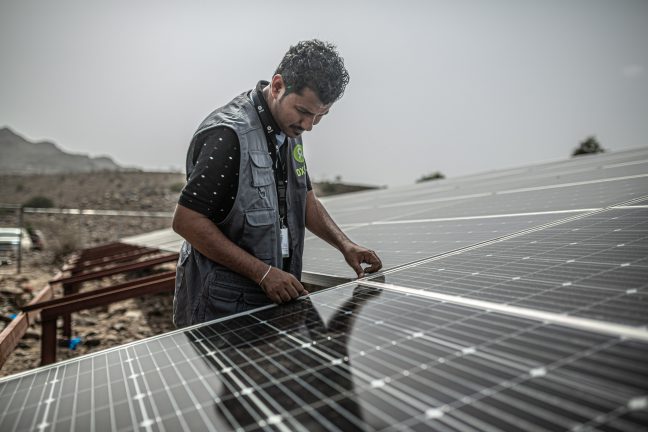
Water filters in Indonesia
In every disaster, water and sanitation are the most urgent needs, as well as food. After a massive earthquake followed by a tsunami hit Central Sulawesi, Indonesia, in September 2018, the water supply infrastructure and pipes were critically damaged. The city of Palu became dependent on a fleet of water trucks that were under huge strain to meet demand.
The fastest and most efficient way to provide clean water is through water purification. Oxfam’s water, sanitation and hygiene (WASH) team brought in water treatment equipment called the SkyHydrant, that converts ground water into safe drinking water without the need for power or chemicals. It can produce 1,200 liters of clean water per hour from a bore hole – enough for around 500 people per day. (Photo: Hariandi Hafid/Oxfam)
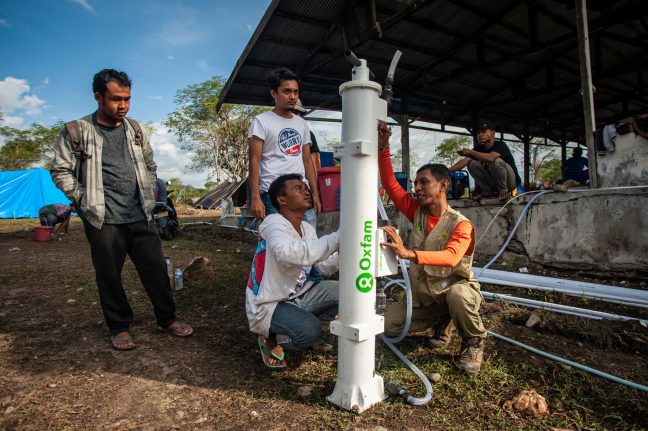
Beating poverty with water for all
We have a vision of a world where everyone has safe clean water to drink. A world where every single person has access to decent sanitation. A world where no one’s life is threatened by deadly waterborne diseases.
Pioneering ideas have the power to change countless lives for the better. With your support, we’ll continue to innovate to achieve a just world without poverty.
